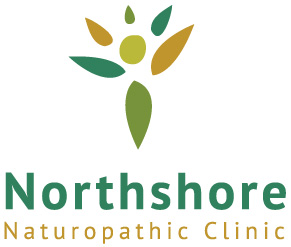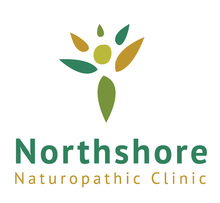By Irene Hayton
Dr. Matsen does not advocate a strict vegetarian diet. He feels that animal proteins are important for maintaining a proper sodium/potassium balance, are excellent sources of complete protein, and in the case of fish, are rich in essential fatty acids.
However, Dr. Matsen realizes that a vegetarian diet is appropriate for some people and it’s a good idea for everyone to include some vegetarian meals and snacks in their diet. It is possible to obtain adequate amounts of protein following a vegetarian diet as long as it’s sufficient in calories to meet your energy needs and your protein is derived from various sources.
If you choose to be vegetarian, it’s important to eat a wide variety of legumes (beans, peas and lentils), nuts, seeds, grains and vegetables. Plant proteins do not contain all of the essential amino acids like animal proteins do. In the past, it was recommended to combine legumes with grains, dairy, eggs, seeds or nuts at each meal in order to obtain complete protein; studies show that it’s not necessary to eat two protein-rich foods at the same time, as long as you eat them on the same day.
For those who eat dairy and eggs, these foods also provide protein. Don’t rely on seeds, nuts and cheeses as your main or only sources of protein because these are high in fat (although nuts and seeds do contain good fats).
Legumes: See the Health Tips Archives for information about Legumes (07/01/2004) and The Benefit of Beans (11/01/04). Tofu and other soy products (such as: soy milk and ice cream; and soy hot dogs and other meat substitutes made from soy or textured vegetable protein) are no longer recommended protein choices on the Eating Alive Program because they contain a number of unhealthy substances. Many soy products are derived from genetically modified organisms (GMO). GMO foods are those that have been genetically altered in order to resist pests and disease, thereby increasing the crop yield. The effects of GMO foods on humans have not been extensively studied so they are very controversial. Because of this, it is best to avoid GMO foods as much as possible and choose certified organic instead. Certified organic food producers are prohibited from using genetically altered foods.
In addition, soybeans contain high levels of phytates (which can decrease the absorption of minerals such as iron, calcium, magnesium and especially zinc) and enzyme inhibitors (which can block the uptake of enzymes that the body uses for protein digestion). They also contain hemagglutinins, which can cause red blood cells to clump together making them unable to properly absorb oxygen, possibly affecting circulation. Fermentation deactivates these inhibitors and the hemagglutinins, so it’s better to choose soy products that are fermented, such as tempeh, natto, miso and fermented soy protein powder. Tempeh—pronounced TEM-pay—is a fermented soybean cake, chewy but tender in texture with a nutty or smoky flavor, and is usually found in the freezer section of grocery and health food stores. Natto is made from soybeans fermented by natto bacillus bacteria and is a traditional Japanese food commonly eaten with rice for breakfast. It has a strong smell and taste and a sticky consistency. Miso is a rich-tasting fermented bean paste made from soybeans and grains, such as wheat, barley or rice. It can be used to flavor soups, sauces and salad dressings. (In Eating Alive II, you’ll find recipes that include tofu because the aforementioned information was unknown to us at the time of printing. Please choose other recipes instead or use these only in moderation.)
Nuts and seeds: For more information, see the Health Tips Archives for Nuts and Seeds (05/01/2003); Hemp Foods (10/01/2005); Flaxseeds (04/01/2008); and Salba Seeds (05/01/2009).
Grains: Include grains such as amaranth, quinoa, spelt, kamut, millet, buckwheat, oats and barley which are generally higher in protein content than the more common grains such as wheat, rice and corn. See the Health Tips Archives for information about some of these alternate grains.
Eggs: If you eat eggs, the best type to buy are organic free-range—the chickens are allowed to forage freely outdoors and consume their natural diet. Commercially farmed eggs are typically from chickens that spend a very limited amount of time outside and are fed a diet of soy, corn, cottonseed, and additives. Organic free-range eggs cost more but are far healthier because they contain more nutrients than commercially farmed eggs; even with the extra cost, organic free-range eggs are an inexpensive source of protein at 6 servings per dozen (1 serving=2 eggs). For more information, see Dr. Matsen’s Monthly Comments Archives for The Health Benefits of Eggs (06/01/2008).
Dairy: If you don’t eat dairy, use organic coconut oil instead of butter and substitute rice milk, almond milk, coconut milk or hemp milk (this one doesn’t taste very good!) for cow’s milk. Some of these may have sweeteners added to them to improve their taste but they are natural ones and these milks are meant to be used in small quantities anyway, such as in oatmeal, smoothies or baked goods—do not use them as a beverage. Unsweetened varieties are your best choice, such as unsweetened vanilla flavored almond milk which tastes pretty good.
Protein Powders: Choose unsweetened whey, hemp, rice or fermented soy protein powders. See the Health Tips Archives for info about Whey Protein Powder (06/01/2007).
Vegans should take a vitamin B12 supplement since this essential vitamin can only be obtained from animal products; vegetarians who eat eggs and dairy usually get enough B12. Other key nutrients that a vegetarian diet may be lacking in are iron and zinc. Consider including sea vegetables (seaweeds) in your diet as these are good sources of vitamins and minerals (including iron). Sea vegetables also contain protein and fiber. See the Health Tip Archives (10/01/2003) for more information on the health benefits and different varieties of sea vegetables. If you do not eat fish, include flax seeds, flax seed oil and/or salba seeds in your diet in order to obtain omega 3 fatty acids.
Be sure to educate yourself further on the nutritional requirements of vegetarians by reading books on this subject or browsing the internet for more info. There are many well-written recipe books that will show you how to prepare healthy, tasty, well-rounded vegetarian meals or check out the Recipes section of this website for options. See this month’s recipe for Black Bean Quinoa Burgers.



